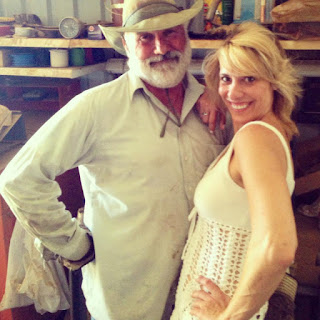Home
My rating: 5 of 5 stars
I highly recommend Home to readers and classrooms. Below is a small bit of why I chose it to book review at the Paris Public Library (this Thursday at 6:30, hope you can join me), beginning with the opening quote:
“Whose house is this?
Whose night keeps out the light
In here? Say, who owns this house?
It’s not mine. I dreamed another, sweeter, brighter
With a view of lakes crossed in painted boats;
Of fields wide as arms open for me.
This house is strange. Its shadows lie.
Say, tell me, why does its lock fit my key?”
I don't know about you, but this resonates deep within me. It's the story of growing up, of finding yourself. Of finding out that home, for good or bad, has made a lasting impression on you, and, just maybe, you can reconcile yourself with that. Perhaps, on a grander scale, it is also a reconciliation to the awareness and owning of our country, good and bad.
I love the book for the imagery of the time that it invokes, and for the depth of each character that the author gives us. I love the use of many literary styles, and the fact that the book is still very accessible. I love the ending.
Here is the low down:
Frank is a Korean vet who was treated equally in the war but slips back into segregated America as it if it is still the norm, which is a good subtle shock for the modern reader, so far away from it. But Frank has bigger worries, mainly that he is haunted by the war. This book is the story of his quest to find his sister, and during his travels he finds himself. This is a very American theme, in the fashion of Mark Twain and Charles Frazier (Cold Mountain). Frank breaks through and speaks to the reader, and occasionally to the author; this is a highly effective, somewhat twisted, way to jar the reader out of the story itself and into deeper thought. Toni Morrison is skilled enough to pull it off.
Cee (Ycidra) is Frank's sister, who thinks that maybe she'd have learned to think for herself if Frank hadn't been there to constantly protect her. She is an accident waiting to happen, a consummate victim, although she doesn't try to be, so trouble finds her when Frank leaves for the war. She and Frank bind each other to this earth, and eventually save each other, once they learn their own self worth. Something in that reminds me of Celie in the Color Purple, and Cee's story is very much an American girl coming of age story, with the honest portrayal of the plight of the black woman.
There are other memorable characters, some snapshots, some deeper, and plenty of themes, all delivered in a punch at 160 pages on my Kindle. Morrison trueists don't like this book very much because it doesn't use the magical realism style that they all love. If that includes you, know that this is American realism fiction, and take the time to think deeper than the story. Ask yourself how the author is so talented to make us care in such a short time. Look at the wording and sentences, and see how she shows rather than tells. Search for all those little details that make the writing so good. Learn from a living legend, who makes you dissatisfied with the humdrum.
View all my reviews
- Posted using BlogPress from my iPad










Comments